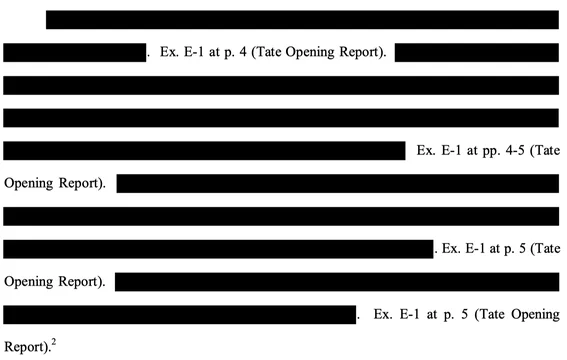
Last week in Voxtur Analytics Corp. v. Haldane, C.A. No. 25-742-GBW-SRF (D. Del.), the Court addressed a plaintiff's request to redact some information from the defendant's counterclaims.
It's hard to tell from the docket (most of the filings are still sealed), but it appears that the plaintiff was under an NDA with a third party regarding some information that may have been produced in the case. The defendant's counterclaims included that information.
The Court held that the fact that plaintiff was subject to an NDA, alone, was not sufficient to support a motion to seal:
ORAL ORDER re 130 Joint Motion for Teleconference . . . . IT IS ORDERED that Plaintiffs' proposed redactions to the counterclaims filed under seal . . . are DENIED because Plaintiffs have not met their burden to show that disclosing the identity of a third party and its CEO "will work a clearly defined and serious injury to the party seeking closure." In re Avandia Mktg., 924 F.3d 662, 672 (3d Cir. 2019) . . . Plaintiffs do not articulate any harm to themselves, and the record indicates Plaintiffs have no objection to the disclosure of the nonparty's identity beyond their obligation to maintain confidentiality under the terms of a nondisclosure agreement ("NDA").
Voxtur Analytics Corp. v. Haldane, C.A. No. 25-742-GBW-SRF, D.I. 146 (D. Del. Oct. 3, 2025).
The Court held that an argument that competitors could use the information to adjust their business strategies was too broad to support a motion to seal:
Plaintiffs focus on potential harm to the nonparty's competitive market position. . . . Without providing specifics, the declaration accompanying Plaintiffs' opening letter submission states that other competitors could adjust their bids and business strategies if they learn the nonparty's identity, resulting in harm to the nonparty. . . . But "[b]road allegations of harm, unsubstantiated by specific examples or articulated reasoning, do not support a good cause showing." In re Avandia, 924 F.3d at 671.
Id.
The Court objected to the deficiencies in the plaintiff's showing here:
Plaintiffs do not cite analogous case authority supporting the redaction of a corporate entity's name, and Plaintiffs' reliance on Scranton Products, Inc. v. Bobrick Washroom Equipment, Inc. is not persuasive. Plaintiffs incorrectly identify Scranton as a District of Delaware case. 190 F. Supp. 3d 419, 439 (M.D. Pa. 2016). Moreover, Plaintiffs pincite a portion of Scranton that upheld the confidentiality of technical, financial, customer, and pricing information, as opposed to the identity of a corporate entity. Id. The ultimate decision in Scranton was based on the movant's showing of specific and concrete harms that would result from de-designation, and not merely the existence of an NDA. . . .
Ultimately, the Court held that it would be impractical to litigate the claims without disclosing some of the information plaintiff sought to seal, including the identify of the third party:
The court finds there is no practical way of litigating the parties' respective claims surrounding the third-party transaction without revealing the participants in the transaction.
Id.
Third Party Information Is Not Always Protected
When the Court hears motions to compel production of third party information that is covered by an NDA, it often shows some degree of deference, and gives third parties time to intervene before the information is produced.
But the Third Circuit's Avandia standard has no such provision for treating third party information more gingerly. It's a demanding standard, and the briefing here just shows how diligent parties have to be if they want things to be redacted.
It's interesting to think about what may have needed to happen for this information to remain sealed. From the opinion, it sounds like the plaintiff doesn't really care about this issue, other than wanting to avoid a violation of the NDA. It may also be that the plaintiff simply lacks the information on competitive harms that it would need to make a showing under Avandia—I imagine it may be that only the third party has that.
Did the third party need to work with plaintiff to file a better declaration and offer more support for sealing? Did they need to go so far as to file a motion in the case? Do they even know this is going on? It's not clear. But protection of this kind of third-party information can be a tricky issue.
If you enjoyed this post, consider subscribing to receive free e-mail updates about new posts.




